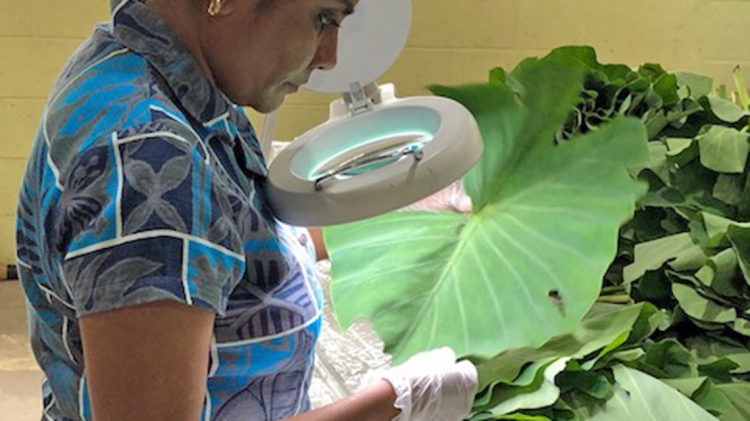IAEA helping Fiji to achieve sustainable fruit production and food safety
A recent visit by an IAEA delegation to the South Pacific nation was carried out with a view to strengthening IAEA-Fiji collaboration in nuclear science and technology.

- Country:
- Fiji
Fiji, an IAEA Member State since 2012, is faced with specific sustainable development challenges that are common to small island developing States (SIDS), including high vulnerability to the impacts of climate change (such as ocean acidification, rising sea levels, increased soil salinity, dwindling groundwater resources and lower crop productivity), weak human health infrastructures, small economies of scale, and great distances between the islands of the archipelago.
A recent visit by an IAEA delegation to the South Pacific nation was carried out with a view to strengthening IAEA-Fiji collaboration in nuclear science and technology. The IAEA delegation, comprising the Director of the IAEA’s Division for Asia and the Pacific, Department of Technical Cooperation (TC), Najat Mokhtar, and the Director of the Division of Radiation, Transport and Waste Safety, Peter Johnston, met with key Fijian political actors on a broad variety of topics regarding Fiji’s sustainable development in line with its Country Programme Framework for 2016-2021.
Fiji is currently making efforts to establish basic radiation and nuclear safety infrastructure in line with the IAEA Basic Safety Standards. This is a precondition for any IAEA support which involves delivery of radiation sources, including those for use in medicine, agriculture, and industry. Officials from the Fijian Ministry of Foreign Affairs and Attorney General’s Department discussed nuclear safety and regulatory infrastructure with the IAEA delegation.
Fiji has a relatively small agriculture-based economy which depends heavily on export market earnings. Fruit exports are hindered by the presence of three species of fruit fly, which seriously affect the quality of Fijian export products such as okra, papaya, breadfruit, mango, eggplant, and chili.
The IAEA is currently supporting Fiji in this area through two IAEA technical cooperation projects that focus on enabling sustainable fruit production by controlling fruit flies, and on increasing agro-industry productivity and exports of fresh fruits and vegetables. Fiji is also positioning itself as a regional hub for food security and safety. Future IAEA assistance in this area formed the topic of discussion with officials from the Fijian Ministry of Agriculture and Biosecurity Authority.
The delegation also visited the Fiji branch of the Pacific Community (SPC), the principal scientific and technical organization in the Pacific region. SPC and the IAEA signed a Practical Agreement in 2017, with the aim of promoting the building of capacity in the Pacific Islands to use nuclear techniques, such as mutation breeding, to strengthen food security in the region.
The delegation also met the United Nations Development Programme (UNDP) Resident Representative, Osnat Lubrani, and the UN Country Team in Fiji, to present the TC programme as a basis for discussions on inter-organizational cooperation. Other topics included the implementation of the multilateral UN Pacific Strategy for the period 2018–2022.










